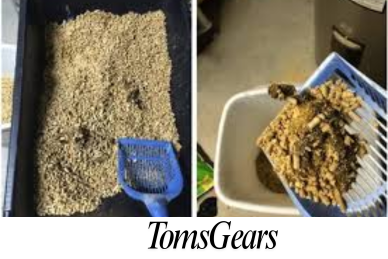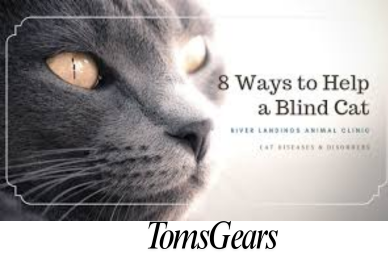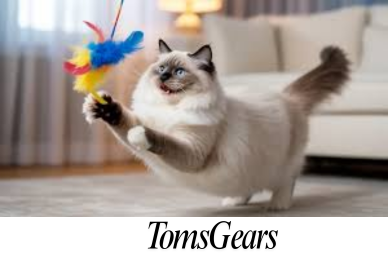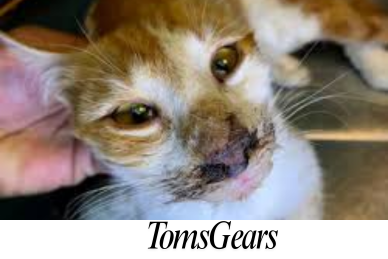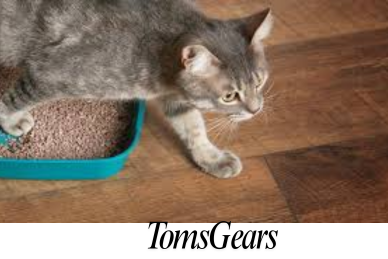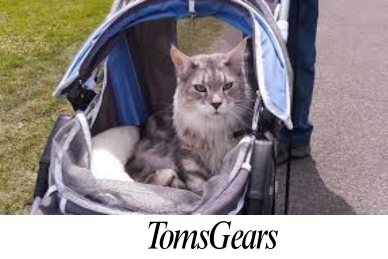Is Grass Seed Litter Safe for Cats?
Short Answer: Yes, grass seed litter is generally safe for cats as long as it is non-toxic, free from harmful chemicals, and composed of natural ingredients. It is a more eco-friendly and sustainable option compared to traditional clay-based litters.
What Is Grass Seed Litter?
Grass seed litter is a type of cat litter made from natural, biodegradable grass seeds. Unlike traditional clay litters, which are made from sodium bentonite or silica, grass seed litter is plant-based and designed to be environmentally friendly. Many cat owners are switching to grass seed litter due to its sustainability, low dust levels, and effectiveness in clumping.
The grass seeds used in this litter are finely milled to produce a soft, absorbent material that behaves much like other types of clumping litter. It’s designed to provide good odor control and ease of cleaning, making it convenient for pet owners while being gentle on cats’ paws.
Is Grass Seed Litter Safe for Cats?
Yes, grass seed litter is safe for cats, but it’s important to check the specific brand and ingredients. Grass seed litter is made from natural materials, typically without artificial additives or chemicals, which minimizes the risk of toxicity. This is crucial because cats, especially kittens, might ingest small amounts of litter while grooming. A natural, plant-based litter like grass seed poses less risk compared to some clay litters that may contain harmful silica dust or sodium bentonite, which can expand in the digestive tract.
What Are the Benefits of Using Grass Seed Litter?
Grass seed litter offers a variety of benefits for both cats and their owners. These benefits make it stand out as a favorable alternative to traditional litters:
1. Safety
Since it’s made from biodegradable, non-toxic materials, grass seed litter doesn’t expose your cat to harmful chemicals or dust. The absence of silica dust makes it a better choice for cats with respiratory sensitivities or asthma.
2. Sustainability
Grass seed litter is much more environmentally friendly than clay-based alternatives. Clay litters are sourced through strip mining, which is harmful to the environment. On the other hand, grass seed is a renewable resource, and the litter breaks down naturally, reducing waste in landfills.
3. Soft Texture
The soft texture of grass seed litter is easy on a cat’s sensitive paws. This makes it particularly beneficial for kittens or older cats that might experience discomfort with rougher litters like clay or crystal-based varieties.
4. Low Dust
Dust from traditional litters can cause respiratory issues, both in cats and humans. Grass seed litter produces minimal dust, making it a good option for households with pets or family members prone to allergies.
5. Effective Clumping and Odor Control
Despite being natural, grass seed litter clumps well and controls odors effectively. It’s a solid choice for keeping your home smelling fresh while making it easy to scoop out waste.
Can Cats Be Allergic to Grass Seed Litter?
Though rare, it’s possible for a cat to be allergic to grass seed litter, just as with any other litter material. Signs of an allergic reaction may include sneezing, coughing, skin irritation, or excessive scratching. If you notice these symptoms after switching to grass seed litter, consult your veterinarian and consider trying a different litter option.
How Does Grass Seed Litter Compare to Other Types of Cat Litter?
To provide a better understanding, here’s a comparison of grass seed litter with other popular litter types:
| Litter Type | Main Material | Dust Levels | Clumping Ability | Environmental Impact | Odor Control | Cost |
| Grass Seed | Natural grass seeds | Low | Strong | Highly eco-friendly | Moderate | Moderate |
| Clay | Sodium bentonite/clay | High | Strong | High environmental cost | High | Low |
| Silica Crystals | Silica gel | Low | Non-clumping | Moderate eco-impact | High | High |
| Pine | Pine wood | Low | Moderate | Eco-friendly | Moderate | Low |
As seen from the table, grass seed litter strikes a good balance between performance and environmental friendliness, making it a suitable choice for eco-conscious pet owners.
What Are the Drawbacks of Using Grass Seed Litter?
Though grass seed litter has many advantages, there are some drawbacks to consider:
1. Higher Price
Grass seed litter tends to be more expensive than clay-based litter. This is due to the cost of sourcing natural materials and producing a biodegradable product. However, some pet owners find that the benefits, such as low dust and eco-friendliness, outweigh the price difference.
2. Tracking
Some users report that grass seed litter can be prone to tracking—meaning your cat may carry it out of the litter box on their paws. Using a litter mat near the litter box can help reduce tracking issues.
3. Availability
Grass seed litter isn’t as widely available as traditional litters. It’s generally found in specialty pet stores or online, and some areas may have limited access to this product.
How to Transition Your Cat to Grass Seed Litter?
Cats can be creatures of habit, so switching to a new type of litter requires a gradual process to avoid any stress or litter box avoidance. Follow these steps:
1. Start Slowly
Mix a small amount of grass seed litter with your cat’s current litter. Over the course of one to two weeks, gradually increase the amount of grass seed litter while decreasing the old litter.
2. Observe Your Cat’s Reaction
Watch how your cat reacts to the new litter. If they show signs of discomfort or avoid the litter box, slow down the transition.
3. Maintain Cleanliness
Cats prefer clean litter boxes. Ensure that you scoop the box regularly and replace the litter as needed to encourage a smooth transition.
Is Grass Seed Litter Biodegradable?
Yes, grass seed litter is biodegradable. This is one of its key benefits over traditional litters. Clay-based litters, in contrast, are not biodegradable and can remain in landfills for a long time. Grass seed litter can decompose naturally, reducing its environmental impact.
How Long Does Grass Seed Litter Last?
The longevity of grass seed litter depends on the size of the cat, how often the litter box is used, and how frequently it is cleaned. Typically, a 10-pound bag of grass seed litter lasts about a month for one average-sized cat, with daily scooping. Regular cleaning and replacing the litter every two to four weeks will help maintain freshness and odor control.
Frequently Asked Questions (FAQs)
1. Can grass seed litter cause respiratory problems in cats?
No, grass seed litter produces very low dust, which reduces the chances of respiratory problems in cats. It’s often recommended for cats with asthma or allergies.
2. Is grass seed litter flushable?
Some brands of grass seed litter claim to be flushable, but it’s generally safer to dispose of it in the trash. Flushing litter, even biodegradable kinds, can clog plumbing or harm water systems.
3. Does grass seed litter control odor well?
Yes, grass seed litter controls odor effectively, especially when cleaned regularly. However, its odor control may not be as strong as some specialized clay or silica gel litters.
4. Is grass seed litter safe for kittens?
Yes, grass seed litter is generally safe for kittens. Since it is made from natural, non-toxic materials, there’s less risk if kittens accidentally ingest small amounts.
5. Can grass seed litter be composted?
Grass seed litter can be composted if it is free of any fecal matter. However, it’s important to note that pet waste should not be used in compost for edible plants.
Wrapping Up
Grass seed litter offers a safe, eco-friendly alternative to traditional cat litters, making it a popular choice for pet owners concerned about both their cats’ health and the environment. It provides effective clumping, low dust levels, and minimal environmental impact, although it comes at a slightly higher price point. With proper care and transition, many cats and their owners find that grass seed litter is a great option for maintaining a clean, safe, and sustainable litter box environment.

